We’re afraid to offend the offensive.
It’s like confrontation constipation with a touch of avoidance followed by an uneasy head nod and a forced smile.
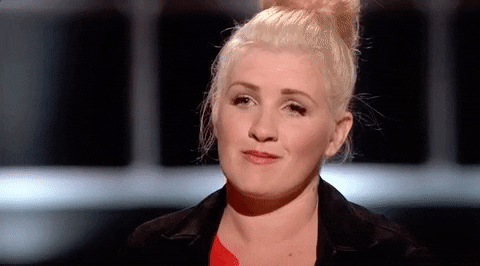
But that’s not all that happens. That’s just the external indicators that you are internalizing whatever on-no-you-didn’t thing that just happened while you keep it together.
That’s ok though, take a moment. Breathe. Contemplating your reaction allows you to process everything happening around you and whether it’s worth a reaction or not.
Doing something so that it doesn’t stay inside, festering like gigantic, explosive turd fecal-ing it’s way from your brain to all extremities slowly but surely tearing at your arteries and clogging your inner core.
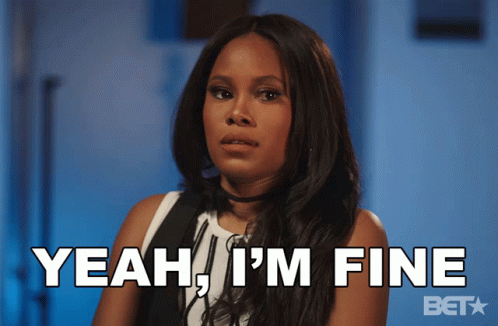
It’s easier for us to complain to five people than the one actual person who was offensive.
I think about how many things have changed over the years and how many things have not changed at all. Accountability has always been challenging, or just downright courageous but it seems more rampant today than ever.
Why? I have a few theories. Three, actually.
Theory #1 – We’re outnumbered.
There’s more of us, making the probability of encountering people who need an intervention at the same level of more people who lack the ability to hold them accountable for it.
In the 90’s, we had about 250 million people documented and living in America. Today, they estimate it’s 333 million. If distributed equally across the 50 states, that’s more than 1.5 million more people per state. My current town has doubled in size in 20 years. Yeah, there’s a lot more of us for sure and it does seem to be crowded. Try going to Costco on a Saturday.
This may be the cause of more good versus bad but it doesn’t necessarily explain the lack of solid, warranted and thoughtfully addressed feedback.
No. If anything, it’s increased frustrations that unhinge strangers against strangers who take it too far, and aggressively.
True story – three days ago it was Christmas Eve. It was unseasonally warm and for every inch of snow that was absent, the dense fog made it a very white Christmas. Eerie mist style.
I was driving cautiously slow, on a side road. Maybe 20-25 mph. There’s this Ford F250 dually waiting to pull out onto the road and as I drive by him, he is honking at me, livid – and I mean livid – I can tell he’s screaming every cuss word at me, flipping me off. I get to the red light, still puzzled as to why he is so mad at me. He pulled up beside me and still is freaking out. Like crazy. flipping headlights, and you can tell – screaming mad.
What the heck? I am literally going over every move I have made trying to figure out what I did wrong and why this man looks like he is ready to drag me out of my car and injure me.
My BFF was with me and was trying to help me figure it out. Then it hit her – we had just left the fire station when it started and I hadn’t turned on my headlights. Yep. That was wrong – I should have turned them on – and I had them turned on all morning. I forgot this one time for possibly two blocks. And now he wants me dead.
I turned them on. I was sorry. But that was insane. This man lost all sense of composure and was scary – at two women in a little lime green Fiesta who spent the entire morning, in deep fog, delivering baskets full of crackers, cheese, sausage and more to every fire station and police station in the county to that them for sacrificing their holiday so that we may safely enjoy ours.
Sure, I was wrong but he was horrible. Merry Christmas dude.

The growing number of people is making it pretty close for comfort, but the offensive seem to enjoy making stranger dangers on the roadways and the social feeds.
Many people, myself included, have come to the conclusion that sometimes it’s just not worth it. I’ve justified not addressing an issue because the person doesn’t care, is missing a big empathy component in their brains or has a history of lashing out.
How many of you have ingested the words you wanted to say only to go home and take it out on someone you love who has no idea what you stuffed inside all day? That’s not solving the problem.
Theory #2 – Being more connected is disconnecting us from being real
Is the lack of accountability across the board worse because we as a society are changing behaviorally for the worse? The exponentially ginormous list of online aggression examples demonstrates that extreme confrontation is alive and well. Vicious type fights have led to more than 68% of people saying they’ve experienced troll abuse online.
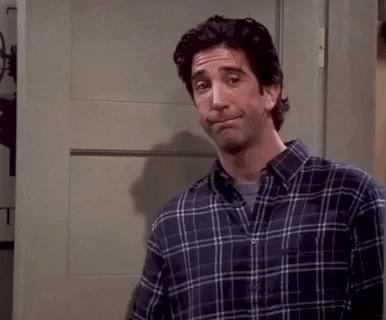
You’d assume that since so many people can be extra bold and spicy online, driving some poor souls to withdrawal, depression and even suicide – that giving your coworker constructive feedback or letting your cousin know their wife offended grandma would be easy breezy covergirl type stuff. Right?
I don’t want Theory #2 to be right. If the rise in bad virtual behavior and the decreased ability to confront people appropriately is because there’s a complacency epidemic from our disconnected online world, we have an even bigger problem.
We can now keep tabs on hundreds of people from every chapter in our lives, mixed in with an ultra-sensitive, one-way street of acceptable people shaming, plus it’s become accepted to attack strangers online without any eye contact needed.
No wonder it’s become so easy to look away at anything we don’t like and argue amongst other groups for who or what we think is to blame. Then avoid clearing the air about it.
Maybe all the chemicals in our food, air, water is finally getting to us all to make us what we consume. Plastic. We’re becoming plastic. Fake. Our mental health is suffering.
I mean, if there’s a known acronym created for a behavior, it must be trending true, right?
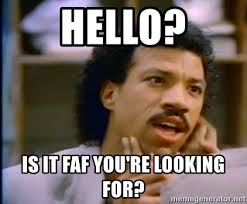
If you’ve learned the ways to use FAF correctly, you’ve realized the results of living in a populated place of no one being real is becoming reality.
Sometimes we use LOL and don’t mean it either. Just being nice, I suppose. Insert a Smiley face here.
This theory may be plausible, but it doesn’t mean it’s going to stay. We can do something about it. My guess is that if push came to shove, there’s enough of us to say enough is enough and change it.
Theory #3 – We’ve forgotten how and now it feels too hard
There’s no Faffing way people like pretending. Being polite? sure. Being kind? Of course. But carrying on as if everything is hunky-dory while crying a little bit on the inside isn’t helping anyone, it’s prolonging the longing to just be yourself.
From work to the public to relationships to family members – even what we tolerate from celebrities or athletes or artists we still financially support regardless of questionable ethics – accountability is like riding a bike.
We all know how, but you gotta practice.
Confrontation is hard, not only to initiate but it’s hard to deliver in an effective way and it’s hard to then end it on the peaceful terms you hope for.
It’s scary, too, because once you open the gate there’s no turning back. I’ve watched people back out of it when the aggressor plays the defense mechanisms.
If you try to talk to someone because you desire to understand what motivates them to hurt people’s feelings, you could end up with a crier, a grudge holder, a sabotager, a revenger – next thing you know, it’s going to haunt your brain for a long time as you tell yourself to never do that again.
It’s not a big deal if you don’t have to see them again, or very often. But if it’s friends, coworkers or family you could have a fallout and all you learned from it was your gut was right. They aren’t genuine or rational people.
Now it’s even more uncomfortable than it was to start. I try to assume that’s why so many people don’t just do it?
Is our lack of accountability due to damaged trust- a PTSD – for attempting to tell people how you really feel?
What if we the weary, the frustrated, the misunderstood, the tolerants who wish for change and want to do great things make a pact to be real this year?
I’m not saying you become outspoken, rude or unfiltered – I mean what if we become as real as allowed while consciously preventing any type of drama, regrets or ill will?
What if we coached each other through it and we kept each other in check?
If you’re with me on this one, here are my ideas on how to practice and be effective.
Getting more comfortable with confrontation
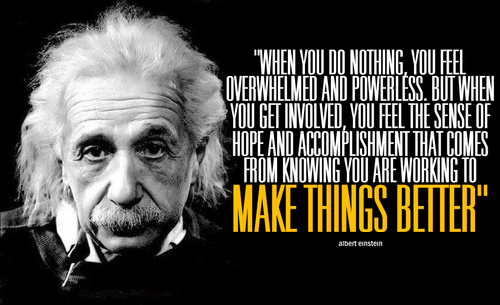
1. Reflect on what keeps you quiet and pretending everything is ok
In the moment of stifling, what’s happening to your mind and body?
Is it internal fears and anxiety that build up and transform into physical discomforts that outweigh the relief of trusting your gut?
Nobody wants that. The clock on life is ticking so decide what’s worth it and what’s not.
2. Decide if being yourself is compromised if you don’t
If you don’t want to stand out, that’s your choice. It’s not right or wrong, but remember Julia Roberts’ character in the Runaway Bride? Life is short, decide how you like to eat your eggs. If you like eggs.
That’s why we cheer on the people who stuck to the beat of their drum. The ones who didn’t give up or give in. If a regular person has something ‘go viral’ it’s usually the authentic motive of being unique that made us all follow it and share it.
The people who were immune to the mainstream serum called ‘common’ are the ones who seem to hit the waves called ‘trending’.
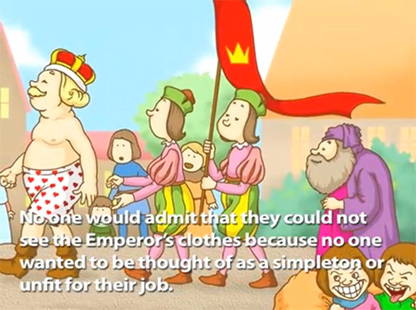
This new normalcy of looking away or wishing it away so you don’t have to deal with it is bull. Like the Emporer’s New Clothes. Be the honest one, the one who wants to help.
Otherwise, you stuff the negative feelings you have down into your gut and ingest it. How nice of you to do for them. Not.
3. Create a shortlist of people who faced critics but proceeded anyway
There are thousands of them out there – some famous, some not. They could be in your neighborhood or on your Facebook. Make a list of who inspires you to say what you know is right even when so many people are saying it’s wrong.
Here are a few examples of people who wanted to be themselves that showed up in my newsfeed recently. Keep that list flowing and update it often. Keeps you trying to see the big picture and not falling into the weeds of gossip.




4. Remind yourself about the physical damage you’re doing to yourself.
If you try to speak up, but swallow the words and force them down, it starts to do just as much damage around you as it does within you.
I used to let the inner girl voice in me confront myself rudely for allowing petty things to build up until I have to speak up.

“I can’t believe you just didn’t say something right away. Here we are now. Good job. Now it’s a mountain of things unsaid”
Letting it go can have serious health ramifications if you actually don’t let it go from your mind.
A good indicator is the feeling of butterflies. The bad ones.
These bad butterflies happen when your thoughts are allowed to use physical trickery to talk you out of stuff. The stronger the fear the more frozen you can become. If you get to the point of completely frozen, then your brain yanked the brakes since all other signals were overridden. Like the butterflies.

I think of the kid standing at the top of the waterslide, refusing to go down and unable to go back either. Just frozen.
The good butterflies are when it’s something you like getting so excited for, you’re anxious while anticipating something you’ll like after you’re done- like rollercoasters, a first date or public speaking. If you hate those things, then it’s negative anxiety, the opposite of anxious.
The butterfly spectrum.
I feel for those frozen little kids holding up the line on the slides. It’s like me on those dang trust play gym wooden things they build for adults to have “off-site team building” WTH.

No. I’m content with many fears and have agreed with my body and mind to not put us in situations that cause that kind of anguish. I won’t do those wooden telephone poles of safe daredevil-ism. Or explore caves or a dozen other things you can pay someone to let you do. I’m good.
5. Give yourself a pep talk on why you should or shouldn’t say something
Regret stinks, especially when avoiding makes something bigger the more it continues. Like ignoring a leaky faucet until the whole floor rots out.
Standing up for something you feel passionate about? You gotta practice it and get the butterflies to back off. Especially if the fear of saying what you really feel is equivalent to my fear of swimming in open opaque water.
If that’s the case, you’re gonna have problems. The chances of coming across someone that is not behaving in a way that helps the greater good is exponentially higher than my pressure to be forced in dark water and gamble that the sharks aren’t hungry today.

It would be a lot of negative butterflies chalking up your stomach all the time, let’s put it that way. Versus a beach vacation every couple years.
Standing on the edge of swimming in river monster or ocean beast territories makes my stomach sick, every crevice begins to sweat, my heart-pounding hurts, my blood pressure changes for the worse, my ears buzz like they need to pop… and full-blown panic attacks can occur I’m put into said water. Bad memories as a kid caused it.
I’m sure I could work at it and after hundreds of jumps off the boat I could get better at it I just have no desire to change that. I tried snorkeling on vacation a couple years ago. That was stoopid.
If it’s something you want to change, like jumping off a team building telephone pole, that’s good for you, I guess. You can practice by reminding yourself that once you’re done you’ll be happy you didn’t let them magnify or hold you back. Turn bad butterflies into good ones.
6. Talk yourself through all these questions to make sure you should do it
Nowadays I get resentful if I stuff those feedback talks in my mind because my override switch got stuck. Remember, stop stuffing and start talking. Practice makes perfect.
It’s the delivery, after all. When in doubt, remind yourself as I do, if you say it right you can make a positive change for a lot of people.
Plus, you always feel better after you do it. It’s going to be ok because you’ve done the following 5 exercises:
- You were curious, not furious. You took a collective amount of time to empathize with every and all possible motivations this person may have had to do whatever it is you feel isn’t a good habit to develop.
- You’ve talked to your trusted person about the situation, presented all the facts that you know and don’t know to come together on whether it’s a validated issue or just a lack of capabilities on their part.
- You’ve decided if it’s teachable, intentional, or salvageable motives for you to talk to them in the first place.
- You’ve rehearsed it in your mind and used your above facts to determine best-case success versus worst-case scenario.
- Your full intent is for both of you to stay in a comfortable place and get it resolved for brighter days ahead.
If you don’t think it will resolve anything, and the situation is not going to change, then the action plan continues. You’ve still got options.
- Who can help you change it so everyone wins? Will they?
- What can you do to attempt to repair it? “It’s not my fault but it is my problem.”
- What’s the best case for success and the worst-case scenario if you continue to address it or move on?
- What does success look like for this situation?
- Now what?
I went to a conference…haha, I know, I feel like I say that like, “This one time, at band camp…”
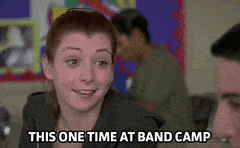
I’ve been to ALOT of conferences through corporate life, ok?
The common thread through the speakers was to be true to you, come from a good place in your heart and think of everyone else in their wake if you don’t.
Ever warn someone about a slick spot on the sidewalk? Pick up broken glass? Sure you have.
Next question, have you ever helped someone back from becoming the person they should be?
That could be a yes if you let someone stay miserable at work and bring the whole team down. It could be a yes if you don’t step in and protect someone who’s being bullied at school. Or online. Or anywhere you witness it.
Point – Whether you confront people, speak up and ask people for clarification so you may better understand their actions or intentions… or don’t… Be true to what you believe is right, fair and just and ask that others do the same. Even if sometimes that means you ignore, smile and wave sometimes.

Stand up, and stand out by saying what you’re thinking in an attempt to help all boats rise together.
I’ve offended people before – and had no idea I did, not any intention to. More often than not, misunderstandings can be fixed if one of you just says something.
I told my son once, who is so intelligent and thoughtful, as a young teen was feeling frustrated and disappointed a lot in people’s choices that he deemed half baked or irrational and he wisdom puts me in awe. I feel like all of them have that gift and sometimes curse.
You have a choice. It’s all perspective. You have consistently tested your whole academic life in the top 98th percentile while making every teacher report glow with your natural ability to light up the classroom. This means you can either be disappointed and let down, which we know is highly likely 98% of the time, or you can take that energy and use it to challenge how you can teach, motivate or inspire the 98% to see what you can see and know how you know it.
Rise the waters, babe. The boats will follow.
Are you with me? 2020 is upon us!
Thanks for reading,
Heather
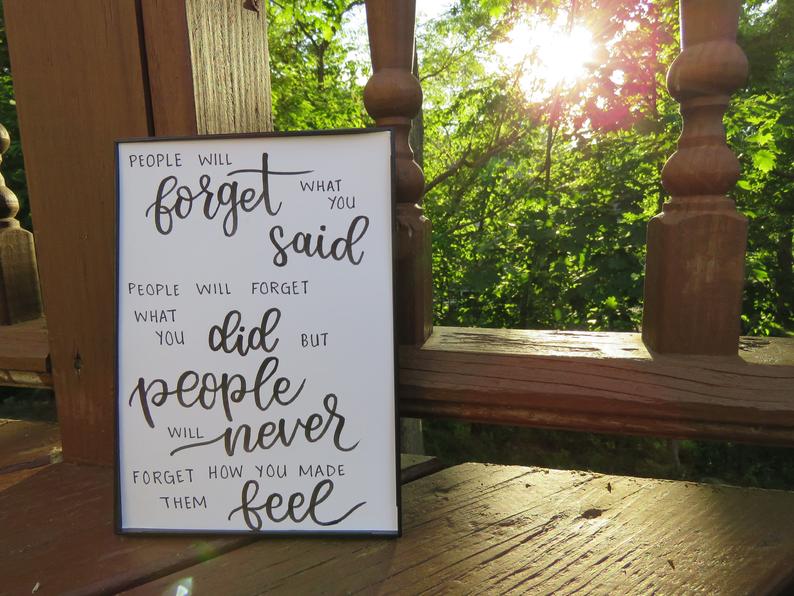
Sidebar story bonus – When to let people go and when to work hard to keep them around. Think of it as a bread drawer.

I know how it feels for me. I’ll see, hear, feel bad vibes hit me and I have to get curious, not furious first. I try to assess the level of the vibes before I decide how to react.
Like inspecting a loaf of bread to determine if it’s still eatable. Maybe it’s just a little firmer than you’d like but it’s still ok.
Then it may be a no-go as a sammie but there are no green spots, so let’s make some toast. Or grilled cheese. You can live with it.
But then there’s the green. Maybe a spot here or there but you can dig down into the slices and find some viable core left. And get the toaster out. You try to salvage what you can.

But if that bread is half empty, marbled with fungus and the last nail in the garbage bin coffin? There’s a fresh loaf you got yesterday right next to it. Pitch it.
So here’s my theory to why you have to stay as real as possible while giving out as much grace as possible too. The balance of it. You have to stay true to you, and at least do what you can do because it’s good for you. If it’s an epidemic that’s all that can prevent you from catching it and then dying with regret.



